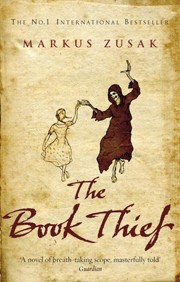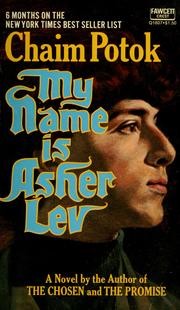The Book Thief (with spoilers)
 It will be awhile before I’m able to see the movie, but I have spent the past week or so reading The Book Thief. I realize I’m way behind the curve on this one! It was an unexpectedly powerful book to me. The first time I tried to read it (several years ago) it didn’t click; the narrator, Death, gave the whole book a morbid feel, and he seemed a tad too melodramatic. But I stuck with it this time and found its characterizations to be absolutely amazing. It’s the kind of book that makes me wonder: how did Markus Zusak ever think of this? How is such a story born, and how does it grow?
It will be awhile before I’m able to see the movie, but I have spent the past week or so reading The Book Thief. I realize I’m way behind the curve on this one! It was an unexpectedly powerful book to me. The first time I tried to read it (several years ago) it didn’t click; the narrator, Death, gave the whole book a morbid feel, and he seemed a tad too melodramatic. But I stuck with it this time and found its characterizations to be absolutely amazing. It’s the kind of book that makes me wonder: how did Markus Zusak ever think of this? How is such a story born, and how does it grow?
One review I read referred to Zusak’s “postmodern” narrative interruptions. Though they disrupted the normal sequence of events, I eventually appreciated these teasers, however heavy-handed. In effect they gave me something of the same experience as rereading, in which you know the plot of a book and find that suspense, or uncertainty about the outcome, are not the main things holding you to the reading process. As C.S. Lewis has written, “Not till the curiosity, the sheer narrative lust, has been given its sop and laid asleep, are we at leisure to savor the real beauties.”
What did hold me to The Book Thief? Part of it was curiosity about the details. How does Rudy die? What are Death’s dark hints about regarding Liesel’s world ending? What becomes of Max? But most of it was that the glimpses of heroism were so compelling. Hans Hubermann, Rudy Steiner, Ilsa Hermann, and of course Liesel herself remind me that ordinary kindness in extraordinary circumstances has ten times the potency.
Although Zusak himself says that part of the joy of writing is simply playing with words, John Green in his review finds a way to reconcile The Book Thief‘s sometimes distracting descriptive style by tying it in with the chaotic nature of the tale’s fictional world:
Indeed, everything is upside down in Zusak’s Nazi Germany. Sounds are tasted, visions are heard, death has a heart, the strong do not survive, and your best chance of living may be a concentration camp. The entropy of this world is near complete.
…But it’s the kind of book that can be life-changing, because without ever denying the essential amorality and randomness of the natural order, “The Book Thief” offers us a believable, hard-won hope. That hope is embodied in Liesel, who grows into a good and generous person despite the suffering all around her, and finally becomes a human even Death can love.
It’s a welcome change from the dark stories most middle and high schoolers were assigned when I was in school. I don’t recall much hope in books like Animal Farm (which I am currently rereading) or Lord of the Flies or “The Lottery.” This book certainly has its share of darkness (as any war story must), but I would agree that I closed it feeling that the good things were affirmed.
It’s not central to the story, but I find myself musing about how I might respond to the idea of “the essential amorality and randomness of the natural order.” I totally understand why someone would see the world that way. For a Christian, the orthodox explanation would be that this world is neither random nor amoral, but rather fallen. It has been redeemed and is playing out a sometimes agonizingly long story of ultimate restoration. In the midst of it we continue to have wars and hatred and suffering. But as in The Book Thief, we also have real goodness, and love, and courage.
As this brief commentary by the author indicates, the story originated in a desire to capture beauty, even the beauty in war-making human beings, in a terrible time. I won’t easily forget the everyday heroes I’ve met in these pages.




8 Comments
Barbara H.
When I first heard of this book, all I could think was that it sounded odd. But I have heard so many good comments about it that I really want to read it now.
DebD
I loved this book when I read it (or rather listened to it). I love how he captured the upside-downess of war-time Germany. I don’t think I want to see the movie. I think it would spoil it for me.
Julia Hempstead
Hi Janet,
So glad to learn of your blog and your “former” life in PhD English. My daughter will be encouraged and blessed (as am I) by this discovery. ♥
Janet
I enjoyed our visit today! Thanks for stopping by here. :-)
Amy @ Hope Is the Word
I was really taken in by this book when I read it after it first came out. I want to see the movie, but I want to re-read it first. I think it will only improve, as you say, on the second reading.
Sarah at SmallWorld
I love this book so much! I read it years ago but am in the midst of it again as I’m teaching it this year in my World Lit class. The kids are finishing it up this week, and they absolutely love it. We’re hoping to still catch the movie while it’s out.
Sherry
I’m in the minority because I didn’t really care for The BookThief at all. I came away with more questions than answers. I did like your C.S. Lewis quote, which I hadn’t read before. It’s true that one can slow down and enjoy the details when the urge to find out what will happen is sated.
Carol
I read the book a few years ago, and like you Janet, it didn’t really grab me. I saw the movie about 2 weeks ago and loved it. I’d like to try reading the book again & see how I feel about it now.